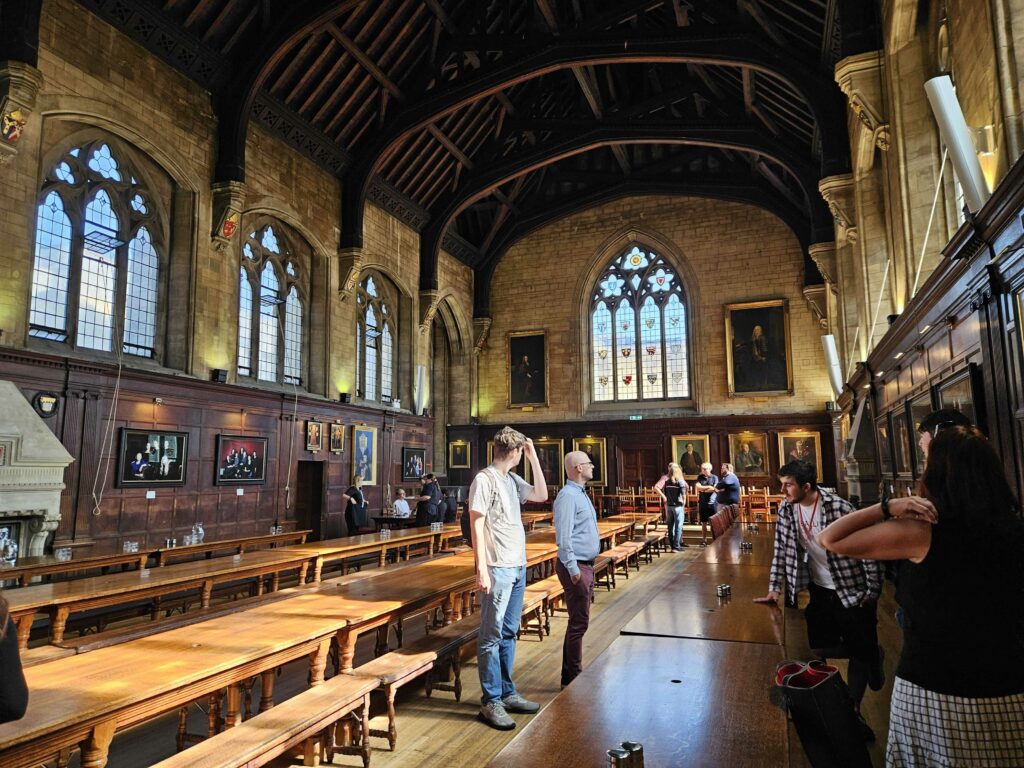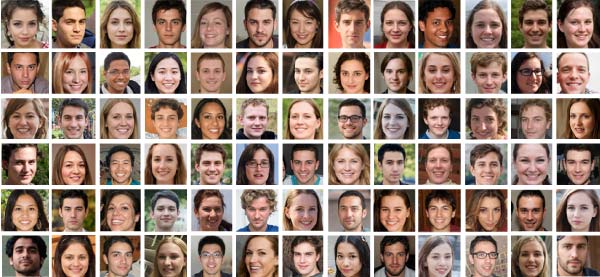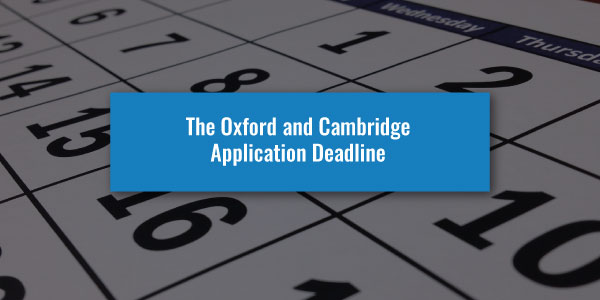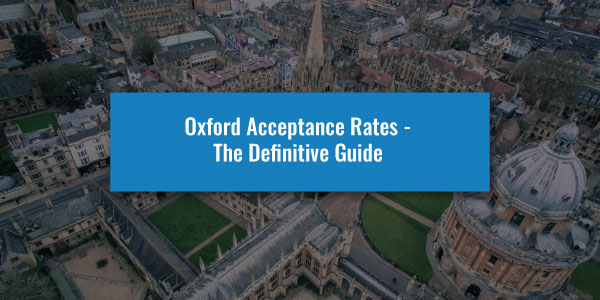On September 15th 2023, Oxford held the final of their university Open Days for the year. We were able to attend a variety of lectures, tour colleges and speak with tutors at the university to learn more about the Oxford admissions process for 2023 and beyond.
This guide features all of the key information that we were given during this Open Day, including new details on the admissions process and confirmation of existing knowledge. We focussed on three major subjects at the university while also learning more about general life at Oxford, so find out what we learnt below.
In short, these are the key details we found out:
- All admissions interviews will remain online for at least the next five years.
- A replacement for the BioMedical Admissions Test (BMAT) has not yet been decided for 2024 applicants.
- No major changes are planned for the PAT and other admissions tests currently run by Tata Consultancy Services (TCS)
- Personal Statements continue to be de-emphasised by the majority of subjects and admissions tutors at Oxford.
- Information about Oxford's automatic shortlisting process confirms that the system favours high-performing students from lower performing schools.
- Admissions figures for competitive subjects at colleges remain low, with most colleges accepting just 4 - 8 applicants per subject.
Oxford Medicine 2024
Our first stop on the open day was to speak with a college Medicine tutor about the current and future state of Medicine admissions at Oxford. 2024 is due to be a challenging year for Medicine applicants due to the changes in UCAS Personal Statements, the removal of the BMAT and the increasing applicant numbers for the subject.
Despite this, the tutor we spoke with encouraged all applicants to send their applications. Here is the key information that was discussed about Medicine applications at Oxford:
1. The BMAT Replacement has yet to be decided
As you may know already, the BMAT (alongside various other admissions tests run by Cambridge Assessments Admissions Testing (CAAT)) will no longer be running after the 2023 admissions cycle. The tutor we spoke with did not have any concrete details on what will be replacing the BMAT next year, although they predicted it would be something with a similar format.
While some universities have already confirmed a move to the UCAT, this will be unlikely for Oxford and Cambridge, who emphasise the scientific aspect of medicine within their courses. Other Medicine exams, such as the GAMSAT, may be adapted for undergraduate use, or an alternate version of the BMAT may be devised exclusively for Oxbridge. For now, we recommend revising with BMAT resources should you wish to get started early.
2. Oxford Interviews Will Remain Online For The Next Five Years
It has been decided by the university that interviews for all Oxford courses, including Medicine, will remain online for at least the next five years. This means that all interviews will be held via video conferencing software as they have been since 2020.
This is a decision that some admissions tutors are not enthusiastic about (judging by the reactions of the tutors we spoke with throughout the day), as many tutors prefer to meet with prospective applicants in person to get a better sense of each one. However, with the current format being locked in for the next five years, some tutors predict that in-person interviews may not return at all.
The Medicine tutor we spoke to advised students to ensure they attend their interviews in a quiet location with good internet connectivity so that the interview can run smoothly. Your school should offer you a space to attend your interview should you not have the requirements at home.
3. UCAS Personal Statements Hold Little Importance in the Oxford Admissions Process
While this was already known, the Medicine tutor confirmed that UCAS Personal Statements are not considered heavily during the Oxford admission process for Medicine. One key reason for this is the repetitiveness of content that tutors find each year, making it very hard to differentiate students through them.
However, admissions tutors do still read each statement, so you will need to submit a good-quality statement for your application. Do not expect your Personal Statement to set you apart, however, as the other elements of your application are far more important.
Two areas of the Personal Statement that are of interest to admissions tutors are the discussion of mitigating circumstances and extra-curricular activities. Tutors will always need to know of issues that may impact your performance or application, while discussion of extra-curricular activities is one of the few ways that your Personal Statement can help you stand out. Other than this though, your application will not be dependent on what you write.
4. Oxford's Automatic Shortlisting System Contextualises Applicant Grades When Assigning Points
This information has been known for some time, but it can be confusing to someone unaware of the system. What this basically means is that the key parts of your application are reviewed and assigned points automatically, which is then used as the basis for shortlisting at each college and for each course.
The system takes into account the achieved grades, predicted grades and BMAT results, and then assigns points to rank applicants. However, the system does not simply assign the most points to the highest grades and scores, as this data is also contextualised based on each applicant’s background.
This is particularly relevant for grades, as each applicant’s grades are weighed against the grades of their school’s cohort, as well as the school’s performance as a whole. What this means is that students who achieve grades within a cohort of lower-performing students will earn more points than applicants who achieve high grades in a better-performing cohort.
When asked for more details our tutor explained that this system theoretically favours applicants from state schools, a topic that has caused controversy at Oxbridge over the last few years. While the type of school is not directly considered, national statistics regarding state vs. private schools would suggest that this is how the system interprets the data it receives.
It is worth bearing in mind that this system is only used for shortlisting, while interview performance is the main deciding factor for admissions tutors when it comes to sending offers. Therefore, final outcomes are not heavily based on school status so applicants shouldn’t be put off from applying.
5. Colleges Will Admit Between 4 And 8 Applicants For Medicine Each Year.
As with previous years, places for the Medicine course at Oxford are incredibly limited. The college that we visited will be admitting 6 medicine students this year, while other colleges will range from 4 to 8 offers.
In 2022, around 160 offers were made to 1,713 medicine applicants, so this should give you a sense of the likelihood of success in an Oxford Medicine application.
View our definitive guide to Oxford acceptance rates for each subject for the last 4 years including Medicine.
6. Additional Information About Oxford Medicine
Outside of these major topics, the following details were also discussed by the Medicine tutor:
- The Oxford Medicine course has a strong focus on science-based study in the first 3 years, so applicants should only consider Oxford if this is an area of the subject that they are interested in. The first year of study also does not feature any clinical work experience
- Applicants are not expected to have undergone any major research projects for medicine. This is mostly because opportunities for Under-18's are very limited in this field.
- The Medicine tutor discussed a shift in medicine exams to focus more on Multiple-Choice Questions. Teaching should be adjusted slightly to account for this.

Build the perfect Oxford application with support from UniAdmissions.
UniAdmissions students get access to everything they need to become the best possible Oxford applicants. Through our unique curriculum based around one-to-one tuition and expert resources, you will excel in every step of the application process.
Discover our Oxbridge Premium Programmes now and find out how you can enrol and triple your chances of success.
Oxford Law 2024
Next, we attended the Open Day lecture from the Oxford Law Faculty. Here, we learnt more about why applicants may wish to choose Oxford for Law and what applicants can expect from the admissions process.
The Law Application Process
The application process for Law at Oxford is not seeing any major changes this year, but some important details were discussed regarding each step of the process:
Grades
As with all Oxford courses, applicant grades are one of the most important initial factors in the admissions process. During the lecture, it was stated that applicants with predicted A-Level grades under AAA would not be considered further, regardless of factors. Due to the amount of applications received by the university, this is essential to ensure the shortlisting process can be completed effectively and on time.
Personal Statement
The Law tutors hosting this lecture echoed the thoughts on Personal Statements that were stated by the Medicine tutor we spoke to previously. Personal Statements do not play a large role in the Oxford Law application process, and it was stated that there is no formula that they look for. While it was said that your Personal Statement is written more for your other university choices, it was mentioned that they do still like to see details on extracurricular activities.
LNAT
The Law National Aptitude Test (LNAT) is the admissions test required for Law applications and is not facing any changes in the near future. However, the admissions tutors did have some important details about the test that applicants need to remember:
- The LNAT results are contextualised against the results of other applicants in your region, so your location may alter your performance to a small degree.
- When registering for the LNAT, it is vital that applicants select the tick box that allows Oxford to see their LNAT results when prompted to do so. Last year, over 100 applications were put at risk because applicants did not check this box, with some being rejected.
- When registering for the LNAT, applicants should always use their full legal name (this applies to every other aspect of the application too).
interviews
Interviews for Law are due to be held online for the next five years, a decision that seems to have been made across the whole university. The details surrounding this were no different from what was provided by the Medicine tutor, so it is safe to assume that all applicants should continue preparing for interviews in the same format as they have been for the last three years.
Outside of this information, the faculty discussed a couple of interesting details specific to Law interviews:
- Applicants who are shortlisted have a 2.5:1 chance of earning an offer. These odds are much higher than before shortlisting, as there are 8.3 applicants for every place available.
- Interviews do not test applicants on any specific knowledge and instead test thought-process and critical thinking. It is important to practice these skills in mock interviews to avoid going blank during the real interview.
Wider Reading
The admissions tutors offered some suggestions for texts to read before your interview. These texts include:
- The Rule of Law, Sir Thomas Bingham
- What About Law? Studying Law at University, Catherine Barnard
- Letters to a Law Student: A Guide To Studying Law at University, Jason Varuhas and McBride Nicholas
- The Economist
- Downloading judgements from the UK Supreme Court website
One tutor stated that the most important thing is to read as diverse as possible to gain a variety of perspectives, including those that you don’t agree with.
Studying Law at Oxford
When it comes to the actual course, the tutors hosting this lecture offered a variety of details about what applicants should expect from studying law at Oxford. At a basic level, these are the major skills that students learn throughout their time on the course:
- How to read and digest large amounts of text.
- How to write effectively, mastering persuasive techniques in their work.
- How to think for oneself and reflect on information.
- How to make fine, logical distinctions in scenarios and spot subtle details.
- How to think about rules and regulation working in practice, understanding how they work.
All of these skills are taught to increase student employability to a great degree. It was stated that the course currently has an employment rate of 75% of students entering the legal profession. The majority of the other 25% had chosen to enter a different field using the skills they had learnt.
The tutors stated that they look for three key attributes from applicants during the admissions process:
- Reasoning abilities
- Communication skills
- Application of skills during studies
Beyond this, here are some additional details that were shared with attendees regarding the Law course:
Law students at Oxford are expected to write more essays than other universities in the UK.
Law students have access to the Bodleian Law Library, which contains 40,000 law-related items.
The Law course has two major variations; Course 1 is Standard Law while Course 2 features Law Studies in Europe. Applicants for Course 2 can actually apply for more than one language by requesting to be tested and interviewed for a second language. This can be done after an applicant is shortlisted. Also, be aware that Course 2 applicants will always be asked if they would accept a place on Course 1. This is done to provide an insurance option for Course 2 applicants.
During the lecture, the tutors shared some statistics about State vs. Private school applications for Oxford Law. These statistics showed that State school applicants made up the majority of offer-holders for the course between 2020 and 2022, standing at 68.6%. Private schools held just 11.2% of offers, while international applicants held 20.2%. These figures were presented to dispel the myth that Oxford was biased towards applicants of a certain background.

Oxford Engineering 2024
The last of the major subject talks we attended was for Engineering at Oxford. This talk was hosted by a college tutor and presented information about the course and the current admissions process.
The Engineering Application Process
At this stage, we have covered all of the major, university-wide developments for Oxford admissions, with Engineering being no different. However, we did learn a few interesting details that applicants should be prepared for:
Physic Aptitude Test (PAT)
It was announced earlier in 2023 that administrative duties for the PAT, plus various other Oxford Admissions Tests, would be moved from CAAT to Tata Consultancy Services (TCS). This announcement led some to think that changes would be enacted to the current Oxford admissions tests.
While TCS stated that changes would be minimal, it was confirmed by the Engineering tutor that the PAT was not being altered in any significant way for 2023. However, it was also said that discussions were still in place for the future of the exam, specifically, the weighting placed on its results.
interviews
Once again, interviews will be online for at least five years. Other than this though, we were provided with some statistics regarding the department’s admissions and interview rates. Currently, the department has a 16% admissions rate, with 30% of applicants being invited to interview. This means that roughly half of the shortlisted applicants earn their offer.
When speaking about the interviews themselves, the tutors explained how these interviews are designed to push an applicant’s thinking. Interviewees can expect to start with simpler, general questions before moving on to technical questions that require working out.
Studying Engineering at Oxford
The Engineering tutor offered some details on how the subject is taught at Oxford, including how the tutorial system works in the department (we have an in-depth guide on Oxford Tutorials available here). Beyond this, the tutor outlined what the first year of study looks like for students, which is split into four distinct subjects that each have an examination paper:
- 1. Mathematics
- 2. Electronic/Informational Engineering
- 3. Structural/Mechanical Engineering
- 4. Energy
Throughout the year, students will be monitored with collections, which are essentially mock exams relating to recently covered topics. The tutor we spoke with stated that the benchmark grade for students on the course is 2.1, meaning all students need to be consistently working at this level.
Finally, when asked about work placements, the tutor informed us that placements with companies are available via connections within the department. However, these are not organised through an official system but are instead worked out on a case-by-case basis. Students also have the opportunity to take part in research internships over the summer break.

Life At Oxford 2024
During our time at Oxford, we were also able to explore some of the many college campuses in the city, including Wadham, Trinity and Balliol. Student life at Oxford has gotten back to normal now, so applicants for 2024 Entry can expect to get the full Oxford experience. Here are some important topics that were discussed by the colleges we visited.
Oxford Accommodation
Accommodation at Oxford is unique as most colleges will have guaranteed on-campus accommodation for all three years of study. Rooms available vary in size and amenities, with different room types being reserved for different years of study.
Accommodation costs vary from college to college but most rooms vary between £1,500 – £2,500 per term. Set utility fees are often added on top of this fee.
Oxford Catering
Each college features a dining hall where meals can be purchased between 5 and 7 days a week. A representative from Balliol College told us that eating within the college halls is preferable for most students as they provide the cheapest option for high-quality food. All dietary needs are also considered on the rotating menu.
One thing to consider when looking for a college is that certain colleges do not commonly offer facilities for self-catering. At Balliol College, we were told that few rooms had kitchen access and that dining in the hall was the better option for students.
Oxford College Facilities
The facilities offered by the colleges will be an important thing to consider when applying and we were given some insight into what you can commonly expect from a college.
- Each college has a Junior Common Room (JCR), which acts as the hub for all students to socialise and take part in activities.
- Most colleges offer libraries for their students. While not as large as the department and general libraries, the college libraries tend to offer 24/7 access, which the other libraries do not.
- A college bar should be available exclusively for students that offers an additional social space for both daytime and evenings. These bars will typically offer part time work opportunities for students as well.
- Sports facilities are available within most colleges, including tennis courts, football pitches, gyms and more.
- As previously mentioned, each college features a hall where students can dine. These halls also house the weekly formals and larger events.

Our trip to Oxford’s Open Day was an extremely busy one, but we still were able to see only a fraction of what was available throughout the day. When possible, we always recommend attending Open Days for any university yourself.
When attending an Open Day, always be sure to have a plan of where you want to visit, a schedule of talks that you wish to attend and a list of questions to ask any admissions tutors, lecturers and representatives that you meet. Our expert guide to Oxbridge Open Days offers even more advice on how to prepare and get the most out of the day.
However, this was the last Open Day of 2023, so if you weren’t able to attend then we hope this guide has helped you get a better understanding of Oxford admissions in 2023 and onwards.
Earn your dream place at Oxford with expert support from UniAdmissions.
When working with UniAdmissions, you will be working under a carefully crafted curriculum that has successfully supported Oxbridge applicants for many years. By utilising one-to-one tuition, a library of books, intensive courses and many more unique resources, you will give yourself the best chance of earning your offer.
Discover our Oxbridge Premium Programmes now and find out how you can enrol and triple your chances of success.








